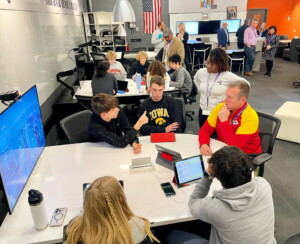Ready For Scale? Host A City Competition

The traditional approach to non-profit scaling is a “push strategy” including synthesizing efficacy claims, brand building, prioritizing expansion sites based on a series of criteria, and testing expansion hypothesis through some trials (where possible). The whole process is preceded or paralleled by a big fund raising process with national and local foundations, corporate sponsors, and individual donors.
An emerging complement to traditional push strategies are “pull mechanisms” (see white paper) which use competitions and incentives to mobilize talent and resources. When a program is sufficiently attractive (after successful brand development, promising early results, and on-trend characteristics), expansion marketing can shift from push to pull.
One of the most visible examples of pull marketing is International Olympic Committee requests for proposals to host the Olympics. Cities work for years on their pitch and promise billions in investment.
Several non-profits have successfully used city competitions to fund and guide their national expansion. Talent developer New Leaders, and school network Rocketship, announced that they wanted to expand but made it clear that there were preconditions that were necessary including funding, partnerships, and appropriate policy conditions. Cities across the country lined up support and made their pitch.
Founded by Jon Schnur in 2000, New Leaders launched leadership preparation in New York, Chicago, Washington D.C. and with the Aspire network in California in 2001. They launched a city campaign in 2003 and expanded to Memphis in 2004, then New Orleans and Milwaukee in 2007.
Rocketship was founded by John Danner and Preston Smith in 2006. After opening schools in San Jose, Rocketship launched a city competition won by compelling proposals from Milwaukee, Nashville, and Washington D.C.
Running a program that other people want is an obvious necessity for asking cities to compete for your services. That means strong early results, a compelling brand, and some barriers to easy copying. Fundraising is easier if the topic is on trend and when there is a solid scaling plan.
Preston Smith offers a caution on city competitions and you need to do your homework:
Although a good fundraising opportunity, this can also lead to non-profit organizations growing to cities without paying attention to the policy, regulatory, and community conditions – do the local folks on the ground – not the funders or ed reform folks – really want you?
A combination of strategies is often the best approach. Charter Board Partners (where I’m a director) developed a promising approach to training and recruiting charter school board members in Washington D.C. With promising results they were able to raise funding from national foundations to open two additional cities. They also created Great Boards, a membership initiative that provides online support for a small fee. This allows them to monetize lessons and tools from deep work in D.C. and to support schools where they can’t afford to open an office.
If you’re enterprise has had some success in one or two cities and you’re benefiting from (rather than fighting) trends, it may be time to consider a city competition. Rather than writing more proposals, wouldn’t it be great to have other people sending you proposals?
For more on scaling, check out:








0 Comments
Leave a Comment
Your email address will not be published. All fields are required.